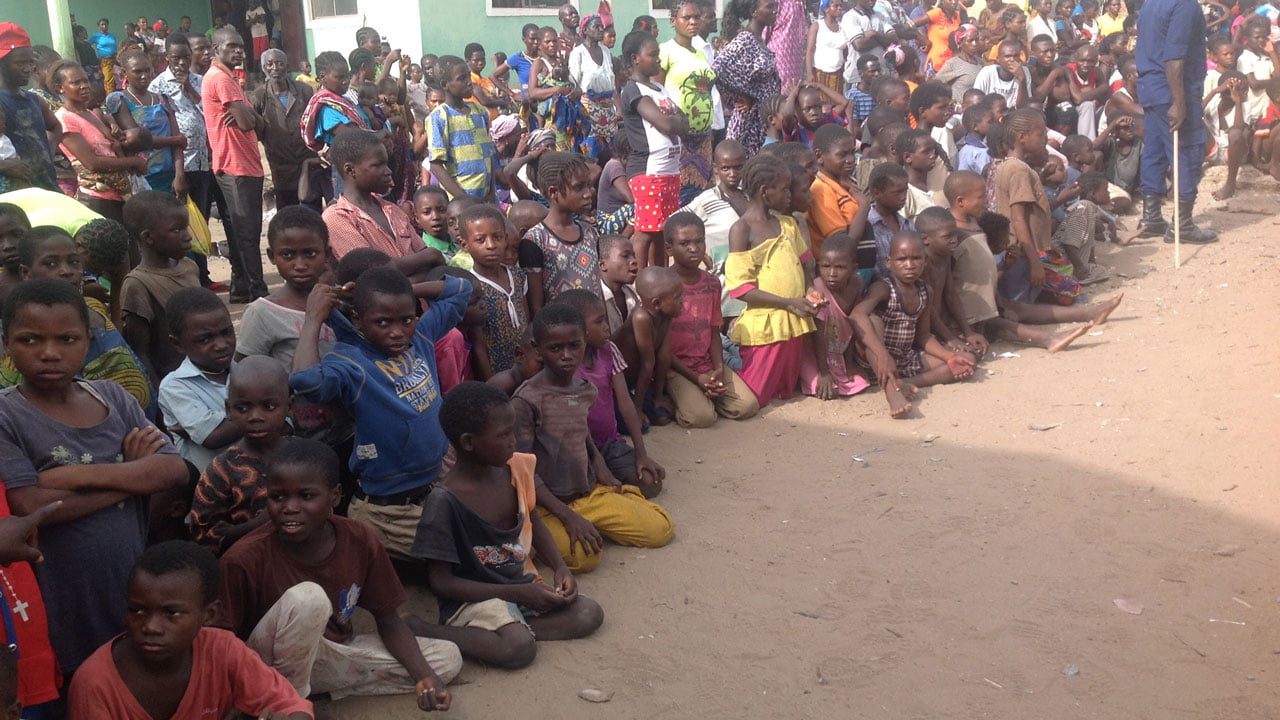Health
Hunger And Malnutrition: 1,250 Children Admitted In 1 Month In Maiduguri

Médecins Sans Frontières said it recorded 1,250 admissions of children suffering from hunger and malnutrition in its facility in Maiduguri, Borno State.
MSF said the 1,250 children admitted in April, was 60 percent higher than the previous year 2023. Nigeria’s MSF Representative, Dr Simba Tirima, said the increasing number of admitted children suffering from hunger and malnutrition was a “crisis at hand”.
Nigeria has been hit by inflation, but the highest of impact is food inflation which has led to malnutrition in the country. The high cost of food items in the market has been on the increase since January 2024, NBS data showed. As food prices rose, wages remained low for the citizens.
Many factors have been identified in the rising cost of food items. In some Northern villages, most farmers cannot access their farms following activities of bandits. Cattle herdsmen activities have also been identified as factors affecting supply giving rise to high cost of food items and its end result of hunger and malnutrition.
The federal government’s policy on fuel subsidy and naira devaluation has also been pointed out as factors responsible for food inflation and the resulting hunger and malnourishment of children.
Financial Analyst, Kalu Aja, said poor supply of food to the market due to activities of bandits would affect prices.
As demand grows and supply slows, payment for the few farm products becomes high. With low wages, many Nigerians are finding it hard to eat three square meals a day.
According to the National Bureau of Statistics, Nigeria’s inflation in April 2024, “increased to 33.69% relative to the March 2024 inflation rate which was 33.20%, an increase of 0.49% points when compared to the March 2024 headline inflation rate.”
“On a year-on-year basis, the headline inflation rate was 11.47% points higher compared to the rate recorded in April 2023, which was 22.22%. This shows that the headline inflation rate (year-on-year basis) increased in the month of April 2024 when compared to the same month in the preceding year,” the report added.
On food inflation, NBS April report was 40.53% on a year-on-year basis, which was 15.92% points higher compared to the rate recorded in April 2023 (24.61%). This was caused by to increase in the cost of food items, insecurity, fuel subsidy removal and devalued naira.
The UN Food and Agriculture Organization office in the north-eastern city of Maiduguri told The Guardian that the most populous black nation has the “largest number of food insecure people globally” at 31.8 million.
MSF’s Nigeria representative, Dr Tirima, said the kids were severely malnourished. Simba said it was “emergency at hand“.
“In all these places we’ve seen, at least in some cases, double what we saw last year or at least a more than 60% increase in the patients admitted. We have a crisis at hand. We have an emergency at hand, and those kids that are severely malnourished definitely need treatment,” The Guardian quoted.
For Simba, while the death of kids yesterday as a result of hunger and malnutrition was a “tragedy” effort should be made to prevent death tomorrow. “A child who died yesterday of malnutrition is a tragedy,” he added. “A child who might die tomorrow because of malnutrition is preventable,” MSF Nigeria representative said.
Nigeria’s government has constantly admitted hunger in the country. At the National Economic Council, on Thursday, June 27, President Tinubu said it was getting late for the governors to put actions together that would address economic hardship and hunger in the country. He told governors of the 36 states to take urgent action to address rising hunger and its effect across the country.
Tinubu said Nigeria must produce what her citizens would eat.
Economic experts and opposition politicians have criticized President Tinubu’s economic policy.
A former CBN deputy governor, Kingsley Moghalu, said the policies of fuel subsidy removal and naira devaluation by Tinubu were wrongly executed.
A former presidential candidate of the Labour Party, Peter Obi, also said unless the federal government addresses insecurity affecting farmers accessing their farms, food inflation would continue to rise.












